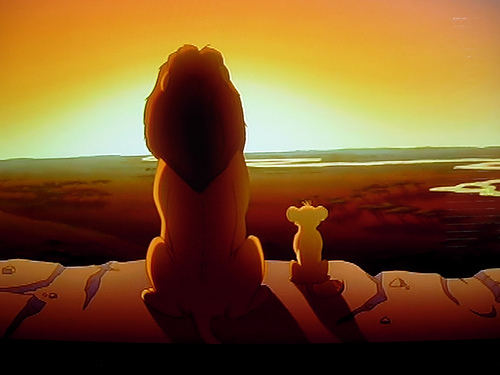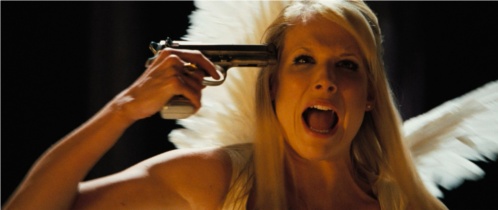Yesterday, I attended the last class of my PhD.
This isn’t to be confused with completing coursework (which won’t happen until my papers are all firmly nestled into the appropriate inboxes, a momentous occasion which will occur next Wednesday) and, really, knowing me I won’t be satisfied until the grades all pop up on my transcript affirming, beyond any shadow of a doubt, that this is (in fact) real.
The class was a five-hour lecture wrapping up my ancient theatre course. This particular lecture covered Sturm und Drang, Weimar Classicism, and Romanticism. It also included a “presentation” I had prepped on Goethe’s relationship with Shakespeare (I put “presentation” in quotation marks because it wasn’t a “talk at the class for x amount of time” kinda deal but rather a “do a lot of reading and act as a pop-up video as we discuss the course reading” sort of thing). This class wasn’t a small deal at all.
But I survived. The class ended with the professor making a few profound remarks about

Yup. It’s me. Slaying zombie Shakespeare. Because I roll that way.
how far we had come and it took all my self-restraint not to stand up in my chair and yet “AMEN TO THAT!” For me, she wasn’t just talking about her course (though certainly we had come a long way there), but rather the progression of my graduate career at Tufts. Two academic years ago, I was sitting in a room, terrified, and waiting for someone to stand up, point at me, and shout “you don’t belong here!” before systematically evicting me from the premises never to return again. That feeling of being a fraud, not worthy of the opportunities allotted me in my career, has faded over time. I’ve learned so many things these past two years; some quantifiable, some not.
Among the other things I’m proud of, here’s a reasonably superficial list in terms of its breadth and depth, but it should at least give you some idea of the way I’ve changed as a scholar since my wide-eyed arrival at Tufts University:
I’ve learned how to gain access to (and dig through) an archive. I’ve learned how to cite the sources that I find there and use them in a paper that I may, someday, publish.
I’ve learned how to get on a plane to a city I’ve never been and be totally comfortable (if a little nervous the first time or two) spending two to four days networking my little Shakespearean heart out with people whom I have never met before, and may be Top Men in my field.
I’ve learned how to write better, how to read better, and how to think better.
I’ve learned about playwrights I’d never though I’d read, performances I’d never known existed, and theorists I’d never hoped to “meet”.
I’ve learned how to talk about my own work in a way that isn’t a snooze-fest (though this will depend upon the audience, of course. Even I can’t make the deep technical aspects of some of my research appeal to everyone).
I’ve learned to read and translate German (…though this is a skill that I’ll be cultivating for some time).
I’ve learned that when in doubt, just look. And when looking doesn’t help you, just ask. There are always people there to turn to.
I’ve learned that it’s amazing what people will do/reveal when you ask them questions. So many people are willing to be so generous with their time if you’re just nice to them.

Yesterday’s theory board doodle
I’ve learned that reference librarians are veritable deities and should be worshiped as such.
I’ve learned that it’s not enough to think, you must do. Touch the ground and your work will always have more depth and meaning. This means it’s not enough just to think about theatre; go see theatre. Make theatre. Get your hands dirty. If we forget why we fell in love with the field in the first place, there’s no way that we’re going to last in it (and there’s no way that we’re going to make our students love it).
I’ve learned that just because it’s obvious to you does not mean that it’s obvious to anyone else, or that it does not need to be said. And, moreover, if you don’t say it, someone else will. Jump on it, take credit for your ideas, and you’ll go much further than if you just simper and mull them to yourself.
…this list could continue ad infinitum but I’ve still got a paper to write. I hope that your finals are treating you well, you’re seeing the light at the end of the tunnel, and that you can take some time today to remember why it is (precisely) that you do this.
…or you could just watch this:








